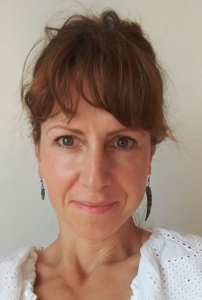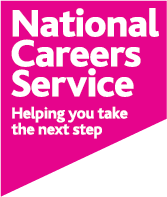Welcome to our Career Breakers interview series, where we shine a spotlight on remarkable individuals who have shattered gender stereotypes in their professional journeys. Throughout this series, we will share the inspiring stories of those who have triumphed over societal norms, paving the way for diversity and inclusivity in various industries. Kicking off our series is Slavka Bila, a trailblazing Product Marketing Leader in Cybersecurity. Join us as we delve into Slavka’s experiences, challenges, and triumphs, showcasing the transformative power of breaking barriers. Get ready to be inspired!
Name: Slavka Bila
Job Title: Product Marketing Leader, Cybersecurity
I’ve always loved creative writing. When I finished secondary school, I moved to New Zealand and completed an MA in Arts from the School of English, Film and Theatre at the Victoria University of Wellington, New Zealand.
At this point, a career in technology (or cybersecurity) hadn’t entered my mind. I saw cybersecurity as a parallel universe and a play for technology geeks.
Soon after graduating, I discovered that the field of creative writing is highly competitive. Many people aspire to become writers (whether it’s writing for the screen or theatre) and breaking into the industry requires persistence, a unique voice to stand out and a decent amount of cash to support yourself while waiting for your breakthrough.
I started looking for other professions that would allow me to use my writing skills. A friend of mine who was in Public Relations (PR) at the time suggested that I gave it a go. “Writing is a backbone of PR – you’ll enjoy it,” she said.
Soon after, I found a job at a local PR agency. My friend was right – the job allowed me to use my writing skills on a daily basis. I’d write press releases, speeches and articles rather than novels, but rubbing shoulders with politicians, artists, business people and local celebrities entertained me.
After a few years of PR I was ready for something new. The key prompt for considering cybersecurity came as a pure coincidence. A good friend became a victim of smishing (an attack where cybercriminals send deceptive text messages to lure victims into sharing personal or financial information). She received a bogus text message that appeared to come from her bank. The message came late at night and had a sense of urgency, prompting her to log into her bank account immediately. My friend was tired and didn’t think too much about the unsolicited SMS. She clicked on a link in the SMS and landed on a web page that was asking her to enter her credit card details to help the bank sort what they claimed to be a login issue their customers were experiencing.
The following morning she discovered that her account balance was zero. The sad fact is that my friend wasn’t the only cybercrime victim in my network but it was her case that inspired me to consider a job in cybersecurity.
Protecting sensitive information from people with malicious intent has a great impact. In a world where every click, swipe, and transaction carries a degree of risk, cybersecurity touches everyone.
Knowing that I wanted to get into cybersecurity was a good start. The next step was identifying potential roles that would match my skill set. Product Marketing and communications roles seemed the most obvious choices. I’ve also discovered that these roles had a higher representation of women than men. Most likely because Marketing is often associated with communication, creativity, and interpersonal skills – qualities stereotypically associated with women.
I then started looking at potential employers. Initially, I considered technology companies with females in senior leadership positions. While that was a good indicator of willingness to promote women, many places still showed a very homogenous middle management. I understood that I needed to look under the hood. This involved more digging on LinkedIn and speaking to people in my network who worked for companies I was targeting.
In 2013 I landed a contract at my first technology company – IBM. It was a fixed term contract, but I worked hard and was lucky; my manager was playing a long-term game and put in a business case to create a full-time role for me. This marked an official start in my Product Marketing career.
I’ve learned a lot at IBM, in both cybersecurity and fintech fields. After IBM I worked for a few years at Wolters Kluwer before transitioning to Cisco’s continuously growing cybersecurity division (my current role).
Let me start with the challenges. I often find myself in meetings with very technical people. At the beginning of my career, complex concepts combined with acronyms felt intimidating. Like a foreign language. Like an elite club that I couldn’t participate in.
It used to be the single biggest challenge. Until I saw that translating tech talk into layman’s terms is like breaking a code: fascinating and hugely satisfying.
The biggest eureka moment came when I discovered that my initial challenge (understanding technical language) can actually be turned into a career. Bridging the gap between the language of technical people such as engineers and those who are non-technical is a useful skill and the DNA of a Product Marketing Manager’s job. One of them is swotting up and offering training to new hires. Being in front of people who ask many questions is the best recipe for getting a deeper understanding of technology – and faster!
When it comes to the most rewarding moments – it was interviewing experts in the online safety space. My objective was to create content that helps parents and carers minimise challenges and maximise opportunities that the digital world poses to their children. It was also a gentle entry into the world of cybersecurity.
As a part of this, I’ve had the opportunity to interview a few amazing women who have been helping families in this space – Dr Elizabeth MIlovidov (Digital Parenting Coach), Parven Kaur (founder of KIds ‘N Clicks) and Dr Elizabeth Kilbey (clinical psychologist). Each of these women brought a unique perspective into the discussion.
These were not only fascinating conversations, but also a great opportunity to see that women can carve successful careers in online safety and that their work can have a long-lasting impact. Each of these women has a unique point of view and it was a great privilege to learn from them.
Yes, I’ve encountered a few misconceptions. Let me give a few examples:
Such beliefs are reinforced by various cultural practices such as buying robots for boys and Barbie dolls for girls. In reality, there is no general superiority of boys over girls when it comes to mathematical performance. In fact, various pieces of research indicate that girls and boys perform similarly in maths when provided with equal opportunities and encouragement.
This begs the question – why do we have more males in certain professions (e.g. engineering or product management)? Mostly because of societal expectations, cultural norms and stereotypes. When beliefs such as “boys are better at maths” are reinforced from an early age, we shouldn’t be surprised that we see more boys taking maths exams and landing jobs that require good results from maths exams.
I’ve also encountered favouring male candidates over female ones for specific roles. However, I’ve been impressed by hiring practices at Cisco (my current employer). To give an example, Cisco has frameworks that encourage hiring managers to form interview panels that are not only composed of people with the relevant expertise but are also very diverse in terms of gender, background, experience, etc. There’s much more that the company does when hiring for more junior roles e.g. blind hiring approach where the resume of the person applying for the position is not shared with the interviewer.
There is a perception that cybersecurity professionals, especially hackers, should fit a certain “look” (e.g. males wearing hoodies and sunglasses even during daytime) or a certain personality. Both often align with traditional masculine stereotypes. In reality, hackers can easily be women in suits. Anyone can be a hacker, irrespective of their gender, background, sexual orientation, etc.
One of the most important things is being proactive. Rather than setting up your LinkedIn profile as “open” and waiting for recruiters to contact you, decide which type of company you want to work for;
Overcoming gender stereotypes in the cybersecurity industry requires concerted efforts. This applies to both people and businesses.
It shouldn’t come as a surprise that employees of companies that actively promote diversity and inclusion are more aware of best practices around diversity and inclusion. When companies prioritise and invest in diversity and inclusion, it often translates into a workplace culture that encourages education and understanding of these principles.
Follow the Career Breakers series on our website throughout January to stay connected with these empowering stories of individuals who have reshaped their careers and challenged gender stereotypes. For real-time updates, connect with us on social media using the hashtag #CareerBreakers.
The National Careers Service provides free, up to date, impartial information, advice and guidance on careers, skills and the labour market in England to anyone aged 13 and upwards. To speak to a National Careers Service adviser, call 0800 100 900 or use our webchat. Lines are available from: 8am – 8pm Monday – Friday, and 10am – 5pm Saturday
